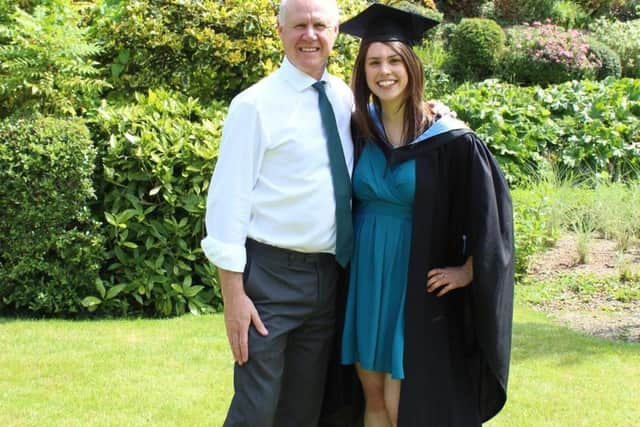Sheffield woman who lost both parents to the same brain tumour backs trial of cannabis based drug
and live on Freeview channel 276
The trial, to be funded by The Brain Tumour Charity, is to launch at 15 NHS hospitals to assess whether adding Sativex, an oral spray containing cannabinoids THC and CBD, to chemotherapy could extend life for thousands of people who are diagnosed with a recurrent glioblastoma brain tumour.
This tumour type currently has an average survival of just 10 months.
Advertisement
Hide AdAdvertisement
Hide AdThe Brain Tumour Charity, the largest dedicated funder of brain tumour research globally, has now launched an appeal to raise the £450,000 needed so it can open the trial as soon as possible.


Esme Tuttiett, aged 26, as well as her brothers Mark, 30 and James, 32, lost both of their parents to Glioblastoma brain tumours.
Esme was just six when their mum, Alison, died of a Grade 4 Glioblastoma. Then, when she was 22, her dad Neil was diagnosed with exactly the same tumour.
She said: “I was so young when mum was unwell – I often struggle to separate what are my actual memories of her and which are stories which people have told me. As a young girl, I struggled to understand that she wouldn’t be coming back, no matter how many times dad tried his best to explain it.”
Advertisement
Hide AdAdvertisement
Hide AdIt was years later when Esme’s dad Neil, a headteacher, began to show some warning signs, such as muddled speech. The family initially put it down to stress. But when things got worse, a CT scan followed by a biopsy confirmed Neil also had a Grade four Glioblastoma.
Esme said: “History was repeating itself in the worst possible way.”
Neil died at home just six weeks after his diagnosis. Esme and her family have since supported The Brain Tumour Charity including raising over £17,500.
Esme, who is studying for a PhD, added: “Research into brain tumours is incredibly vital yet severely underfunded so the need for this trial can’t be denied. I have lived through the horrible impact Glioblastomas cause so, if there could be a way to reduce unpleasant side-effects and also extend survival rates I am in full support.”